Welcome to our guide on crafting a healthcare compliance acknowledgment letter! In today's fast-paced medical environment, ensuring that your team is fully aware of compliance standards is crucial for maintaining quality care and safeguarding patient rights. This letter serves as a formal recognition of your understanding and commitment to these important regulations. Curious about the key components that make this letter effective? Keep reading to discover helpful templates and tips!
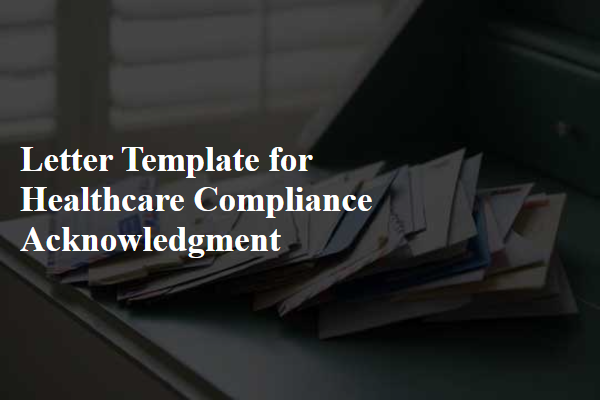
Clear statement of compliance adherence.
Healthcare organizations must adhere to strict compliance regulations, such as the Health Insurance Portability and Accountability Act (HIPAA) in the United States. Compliance ensures the protection of sensitive patient data and upholds standards for billing practices, clinical protocols, and employee training. Regular audits and staff training sessions play a vital role in reinforcing compliance, helping to identify gaps and reinforce best practices in patient care and data security. Non-compliance can lead to significant penalties, loss of trust, and reputational damage for healthcare providers. Therefore, a clear statement of compliance adherence serves as a critical commitment to maintaining ethical standards and safeguarding patient information within the healthcare system.
Specific policies and procedures referenced.
Healthcare compliance acknowledgment is crucial for ensuring adherence to established regulations and standards within medical establishments. Essential policies, such as the Health Insurance Portability and Accountability Act (HIPAA) and the Medicare Conditions of Participation, delineate the handling of patient information and quality care expectations. Procedures outlined in the Compliance Program include regular training sessions, risk assessments, and reporting mechanisms for potential violations. Staff members are trained on specific guidelines for documentation, billing practices, and the importance of maintaining patient confidentiality. Additionally, maintaining compliance with state regulations, such as the California Health and Safety Code, is essential for legal operation and safeguarding patient rights. Compliance acknowledgment reinforces accountability and promotes a culture of ethical practice in healthcare organizations.
Individual's commitment and understanding declaration.
Healthcare compliance acknowledgment signifies an individual's commitment to upholding regulations and understanding healthcare policies. This declaration often includes recognition of federal laws such as the Health Insurance Portability and Accountability Act (HIPAA), which safeguards patient privacy and information. Individuals may declare awareness of compliance training sessions held by healthcare institutions, which often focus on ethical practices and legal responsibilities in patient care. A signature usually accompanies the acknowledgment, affirming readiness to comply with established healthcare standards, rules, and regulations for optimal patient safety and quality care.
Consequences of non-compliance outlined.
Healthcare compliance acknowledges the importance of adhering to regulations such as the Health Insurance Portability and Accountability Act (HIPAA). Non-compliance can result in severe consequences, including financial penalties that can exceed $50,000 per violation, leading to millions in fines for organizations. Legal repercussions such as lawsuits may arise, exposing entities to reputational damage and loss of patient trust. Regulatory bodies like the Office for Civil Rights (OCR) may initiate investigations, further complicating operational integrity. Staff members, including healthcare providers and administrative personnel, must understand that individual accountability exists, with potential disciplinary actions, including termination, for failing to uphold compliance standards. Continuous education on compliance protocols is essential in mitigating risks associated with breaches and ensuring the safeguarding of patient information.
Signature and date lines for acknowledgment.
Healthcare compliance acknowledgment ensures that medical facilities adhere to regulations and standards mandated by entities like the Health Insurance Portability and Accountability Act (HIPAA). Acknowledgment forms typically include designated signature lines, confirming that employees, patients, or stakeholders have understood their rights, responsibilities, and privacy protections under federal and state regulations. Date lines accompany signatures, providing a clear timeline for when the acknowledgment occurred, which is crucial for maintaining compliance records. Ensuring accurate dates and legible signatures supports accountability in patient care settings, enhancing trust and transparency.

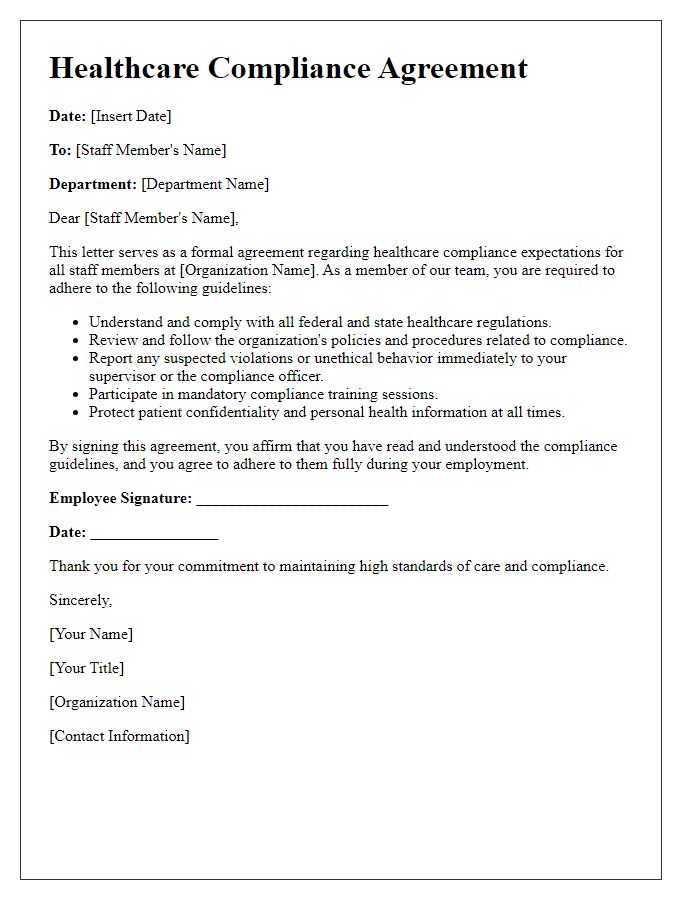
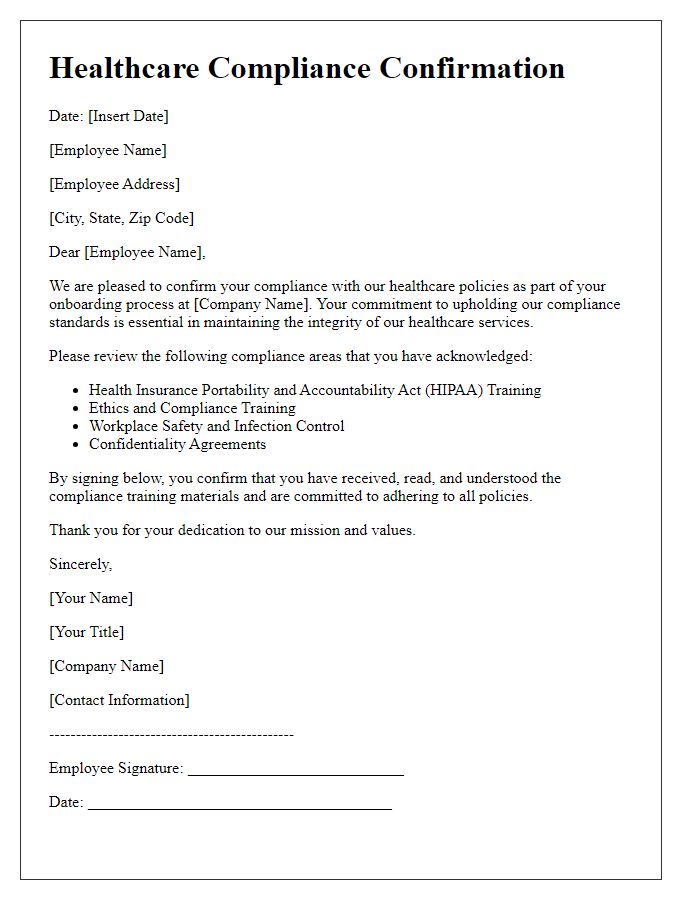
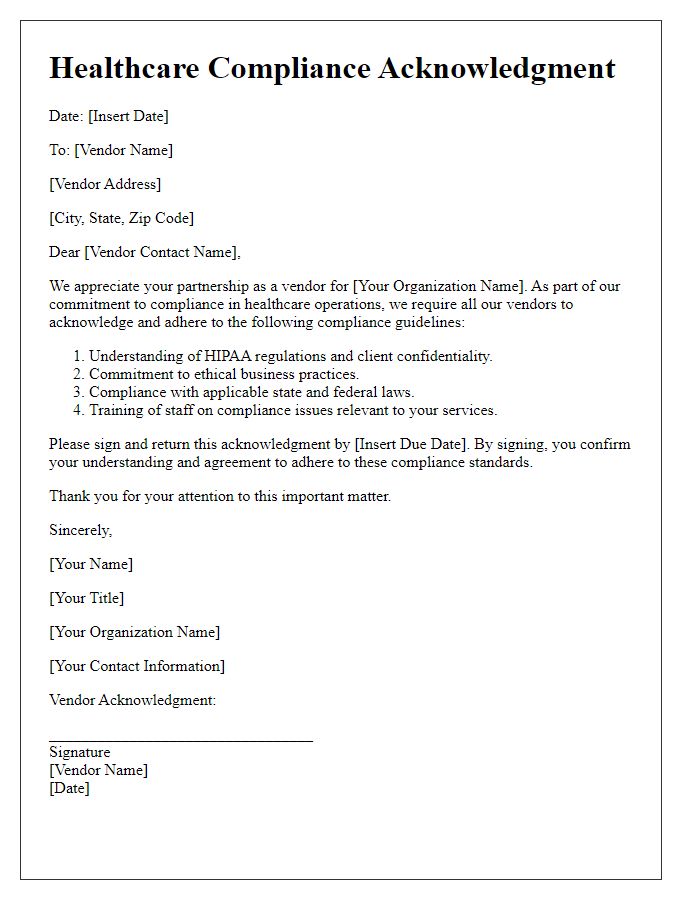
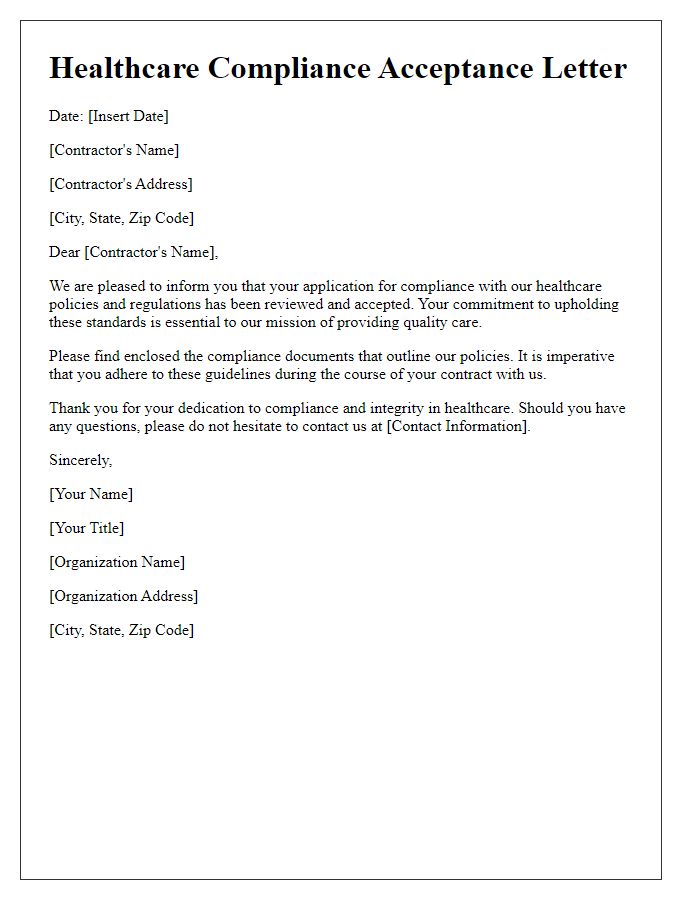
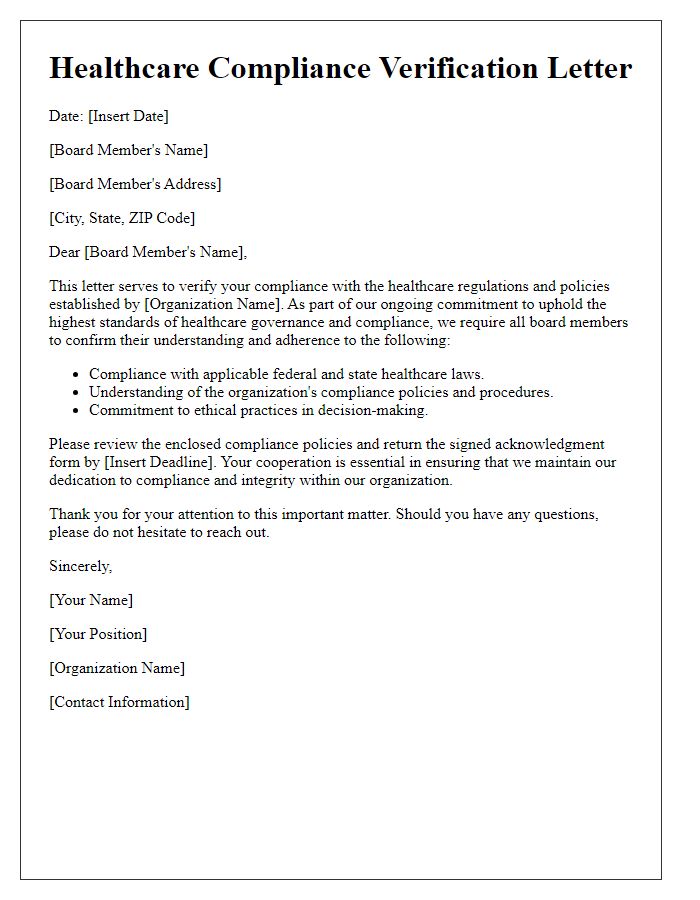
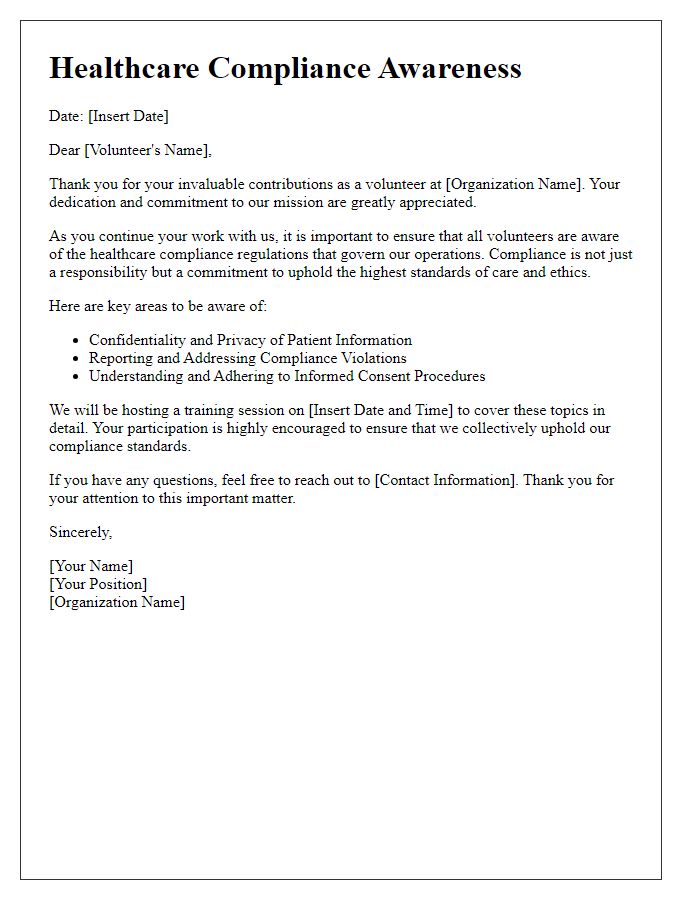
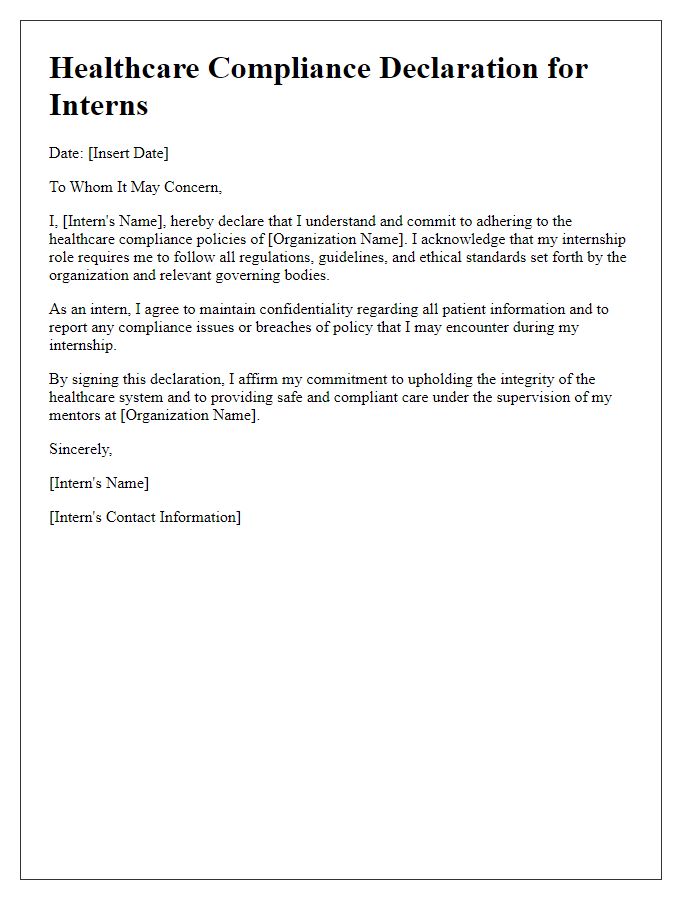
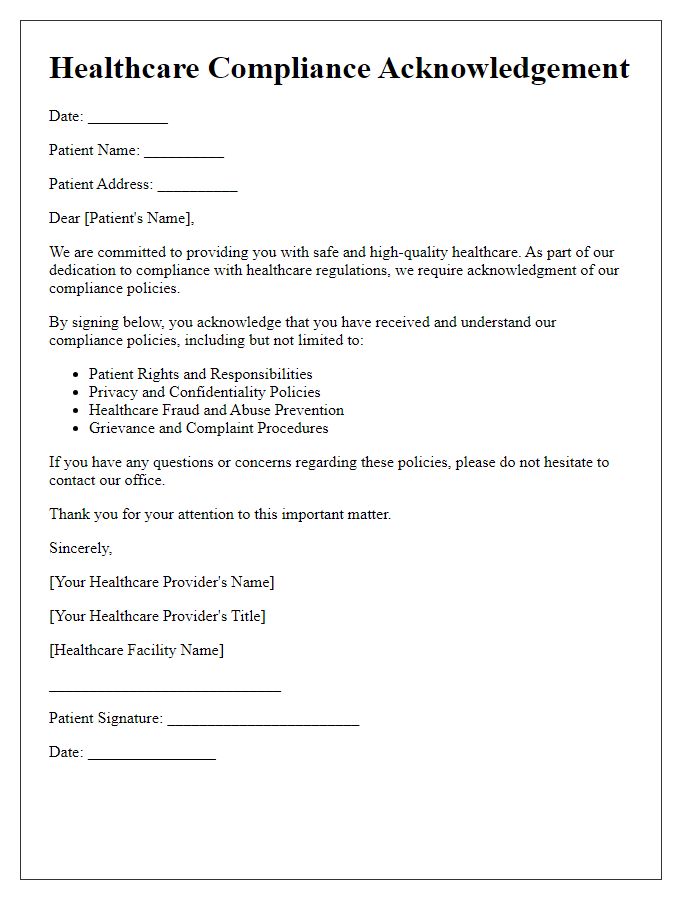
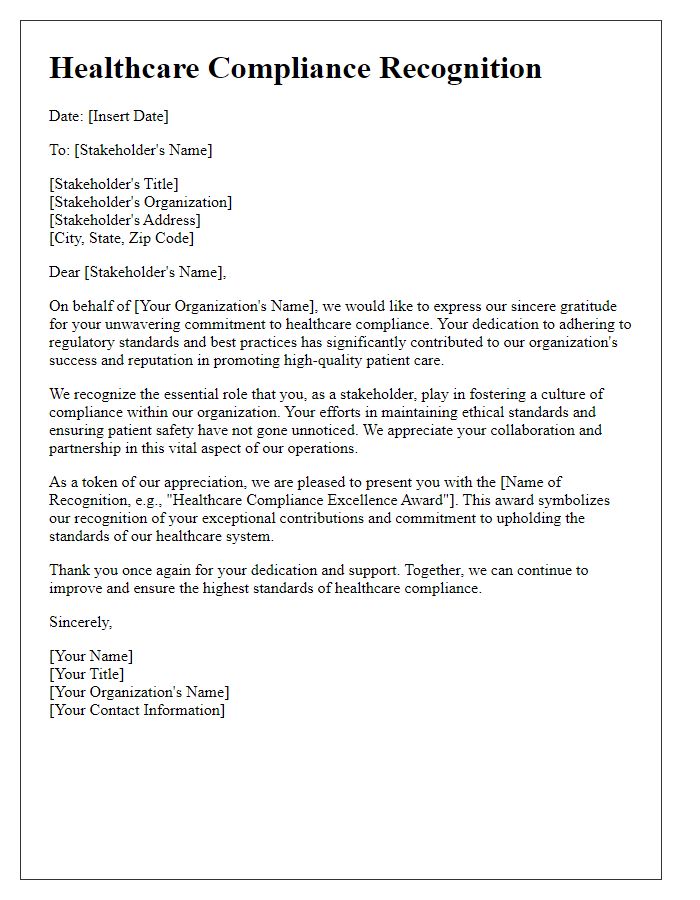
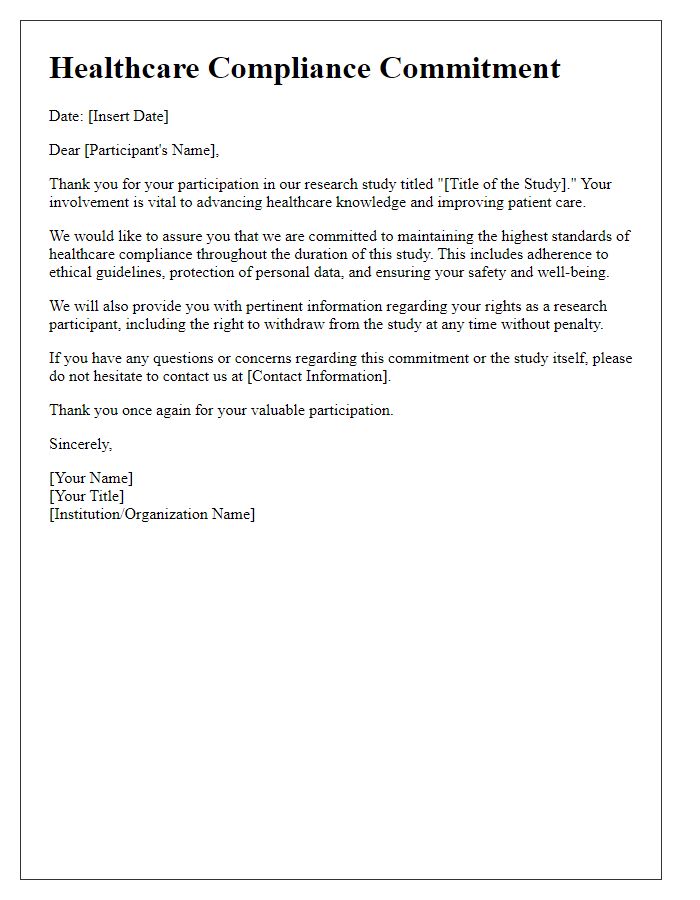

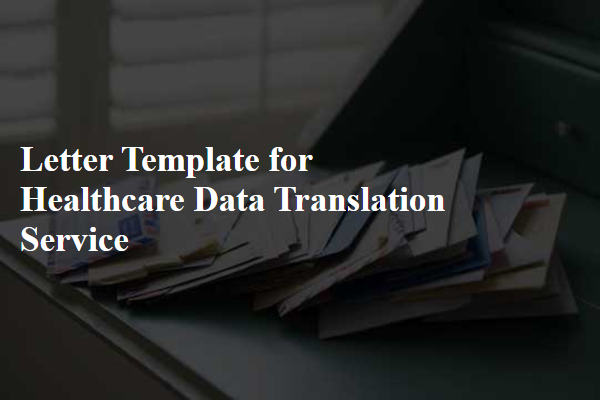
Comments